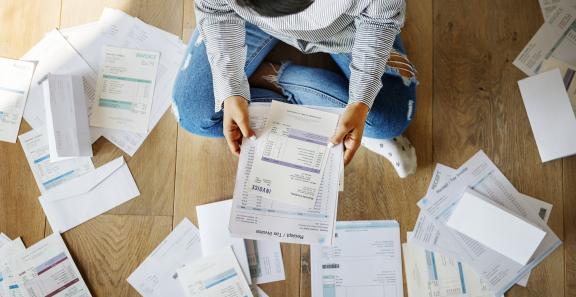Debt collectors are generally prohibited—absent the express permission of a court or the consent of the person—from communicating with them at any unusual time or place, or a time or place which should be known to be inconvenient* to them.
Absent any knowledge to the contrary, debt collectors must assume that any time before 8 am and after 9 pm is inconvenient
A debt collector may attempt to communicate at a person’s place of work, unless the debt collector knows or has reason to know that the person's employer prohibits them from receiving that kind of communication.
In addition, a debt collector may not call a person more than seven times within a seven-day period per debt, and must generally wait a week after speaking with them before making another call regarding a particular debt.11
When debt collectors contact a person through social media, they must keep messages private and identify themselves as a debt collector.
A person may notify a debt collector that they refuse to pay a debt or wish the debt collector to cease further communication with the them. Upon receipt of the notice, the debt collector must cease communicating with that person—except to notify them that they may or will be moving forward with other remedies for the debt.
A person may also opt out of any specific means of communication (e.g. text messaging, email, phone calls, social media platforms).
Debt collectors are prohibited from engaging in any conduct the natural consequence of which is to harass, oppress or abuse any person in connection with the collection of a debt—including (but not limited to)
- the use or threat of use of violence, or other means to harm the physical person, reputation or property of any person
- the use of obscene or profane language
- the publication of a list of people who allegedly refuse to pay debts
- causing a telephone to ring or engaging any person in conversation repeatedly or continuously with the intent to annoy, abuse or harass any person
- the placement of any telephone call without meaningful disclosure of the debt collector’s identity
A person may notify a debt collector in writing within 30 days of the initial communication that the debt (or just a portion of the debt) is disputed. While a debt is disputed, a debt collector must cease collection of the debt until they can obtain verification of the debt. If the debt collector can verify the debt, they must send a copy of the verification to the person.*
A person’s failure to dispute the validity of a debt is not an admission of liability.15
If a person owes multiple debts and makes a payment to a debt collector, they may control to which debts that payment is applied. Additionally, a debt collector may not apply that payment to any debts that are disputed.
Before a debt collector may submit information about someone to a consumer reporting agency, that debt collector must first speak to the person about the debt (either in person or by telephone) or at least send information about the debt to the individual by mail or electronic message and wait long enough for the person to respond.16
If a debt collector violates the Fair Debt Collection Practices Act, a person may file a lawsuit within a year of the date their rights were violated.



